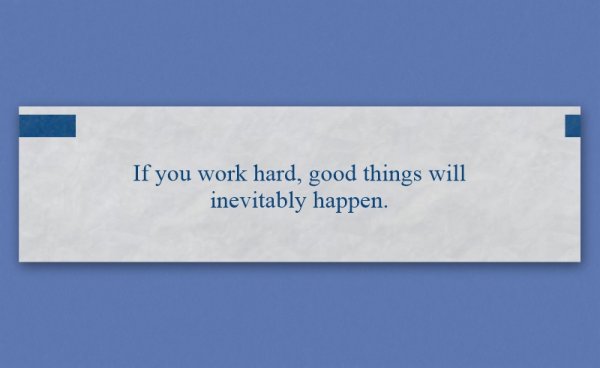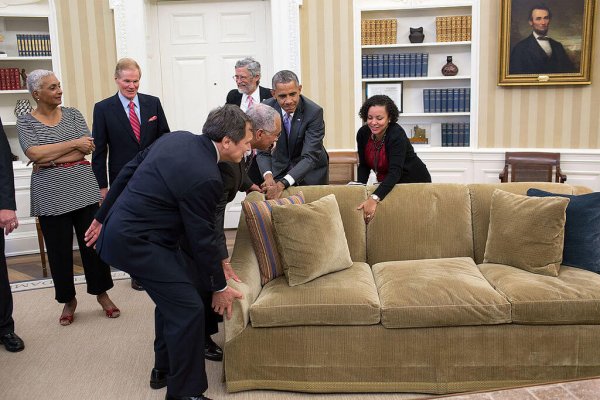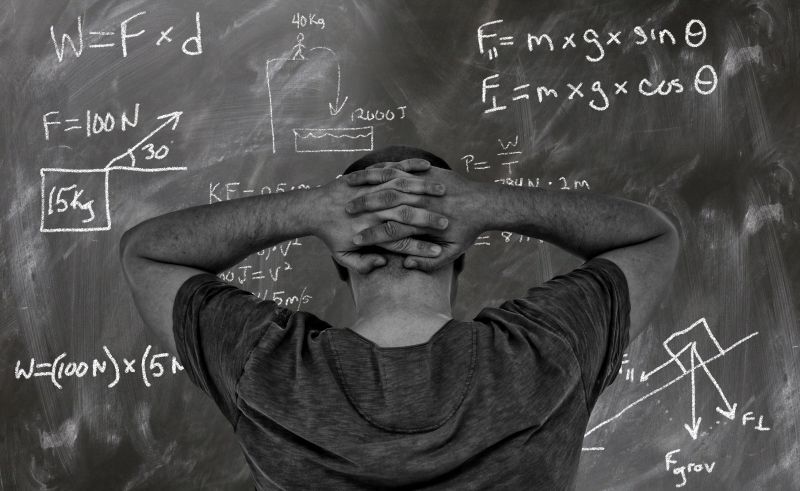Fortune Cookie Friday: Worth the Work
I had to take many classes in college to fulfill my science major’s prerequisites. Physics was one of those classes. And although it was difficult—calculus isn’t my strong suit—I enjoyed the hands-on aspect and learning how things worked in the world of matter and energy.
One of the topics I learned from the course was “Work,” the measure of energy transfer that occurs when an object is moved over a distance by an external force (W = F × d). One can apply work to pressurizing gasses, lifting a heavy object, or turning a screw. We can do the same with our occupations and learning—we engage in some effort to attain our goals. What matters is that to accomplish work, energy has to transfer from one object to another. If we want to accomplish anything, it will be worth the work.

We are always at work. Even when we are sound asleep, our bodies are still performing necessary functions to keep us alive. It might not feel like work while we dream about whatever it is that our psyche lobs at us, but our hearts still beat, our brains still process, and our bladders still fill. All this occurs with the transfer of energy from the food that we ate hours before. It’s too bad we can’t fall asleep on the job and still call it work.
In an ideal system, transferred energy would give us the maximum amount of work—no waste of energy. It would be extremely efficient. Think of a high-performance car. These vehicles have a lot of power relative to their weight. This power to weight ratio maximizes the car’s acceleration. For example, a Dodge Viper has a higher power to weight ratio than a Ford Escort due to having a better engine. This factor allows the Viper to go from 0-60 mph faster than the lighter weight compact car. The Escort will get to you to school or work just fine, but it won’t beat the Viper.

The process of efficiency also applies to work we perform in school or on the job. An efficient person never wastes hard work. There are times that I write stuff that never gets published. Is it worth the work I put into it? Certainly. When I write, everything I work on makes me a better writer, even if no one ever reads it. It’s like practicing an instrument. The same goes with my illustrating. Is it the most efficient use of my time? I guess that depends on what I need to accomplish.
If we want to work efficiently, we need to make sure that everything we do moves us toward our goal. It’s that transfer of energy. Yeah, Physics! Although some efforts move us laterally, these are still better than not making any headway, or worse moving backward.

We might not be the most efficient of workers, but we all grow when we work hard at something. Our efficiency keeps us from working too hard, and not getting results—work smarter, not harder. If we find that we have a little wasted energy, we can regain it by applying it towards our goals. A hot mug of cocoa can warm us by drinking it, but the energy loss through the cup as heat can also warm our hands.
The same premise applies to our lives. We can take our wasted time or energy, and learn from it, find a way to make it work for us and make us better. No matter what your ultimate goals are, being a better you is worth the work.
Well, that’s enough about Physics, energy transfer, and working. Phew! Please excuse me while I perform some critical work…and take a nap.




